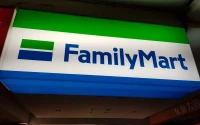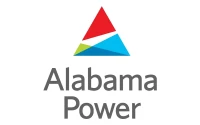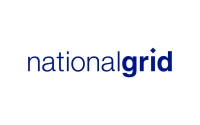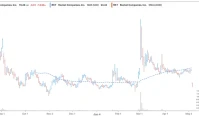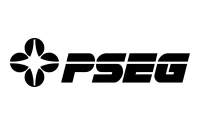A Tale of Two Companies: The Minnesota Rusco Collapse and the Stunning Act of Grace That Followed
Imagine the quiet of a Tuesday morning. You’re Kari or Jeremy Frahm. You’ve worked for years, saved up, and finally written a check for nearly $48,000 to a company with a jingle you’ve probably heard a thousand times—Minnesota Rusco. Today’s the day your new windows are supposed to arrive. But the morning wears on, and the expected sound of work trucks and friendly installers never comes. There’s just silence. A quick, anxious Google search delivers the gut punch: Remodeling company Minnesota Rusco closes, leaving employees & customers hanging. The company is gone. Vanished. Your savings, your project, your trust—all vaporized overnight.
This isn’t just a story about a business failing. We see that every day. This is a story about a system failing. And, more importantly, it’s a story about a different, more human system kicking in to pick up the pieces. When I first read about what happened next, I felt this incredible surge of hope. It’s a powerful reminder that in the face of cold, corporate implosions, the warmth of human decency can still generate its own powerful light.
The Frahms’ story is heartbreakingly specific, but it’s just one node in a massive, cascading failure. Employees were let go without warning. Contractors who had already done the work were left with unpaid invoices. And a staggering $15 million backlog of projects, representing the dreams and savings of countless families, was simply abandoned.
So, what happened? How does a company that was advertising on major sports podcasts just weeks ago simply cease to exist? The answer appears to lie hundreds of miles away, in a Dallas, Texas boardroom. Minnesota Rusco wasn't just a local Minnesota company; it was a subsidiary, one of many owned by a parent company called Renovo. And it seems Renovo decided to pull the plug on at least six of its companies simultaneously.
This is the inherent fragility of our modern, consolidated economy laid bare. The parent company is like a distant, cold star, and its subsidiaries are the planets orbiting it, dependent on its gravitational pull and light. But when that star decides to go dark, the planets are left to spin off into the freezing void. There’s no local accountability, no town hall meeting, no long-time owner standing before the community to explain. There’s just an empty building and a disconnected phone line. It raises a fundamental question: what obligation does a faceless entity in another state have to the flesh-and-blood community its subsidiary was supposed to serve? The answer, apparently, is none at all.
The Human Algorithm Kicks In
Just as the shock and anger began to set in, something remarkable happened. Another local company, TWS Remodeling, stepped into the void. Now, in a purely capitalist, dog-eat-dog world, a competitor’s failure is your opportunity. You scoop up their market share and celebrate your good fortune. But that’s not what happened here.

Instead, the owner of TWS made an announcement that feels like it’s from another era. He offered to honor the contracts of abandoned Minnesota Rusco customers, taking 50% off their contract price. Think about that. He’s not just offering a small discount; he’s essentially agreeing to take on massive projects, absorb huge costs, and aim, at best, to break even.
This is what community looks like in its purest form—it’s not about spreadsheets or quarterly reports from a Dallas high-rise, it’s about a local business owner looking his neighbors in the eye and deciding that restoring faith is more valuable than turning a quick profit. He said it himself: "It's not about money right now. It's about taking care of people." This is an act of what I'd call 'community equity'—put simply, it's an investment in the trust that holds a local economy together. He knows that if people believe all contractors are crooks, the rot will spread and poison the well for everyone. He's not just fixing homes; he's patching the very source code of his community.
The ripple effect of this decision is profound. We’re even seeing former Minnesota Rusco salespeople, now jobless and adrift, reaching out to TWS for guidance. They aren’t seen as the enemy; they’re seen as members of the same ecosystem who also got burned. TWS is becoming a new center of gravity, a trusted node in a network that was violently disrupted.
Of course, the fallout from Rusco’s collapse isn’t over. There will almost certainly be a `minnesota rusco lawsuit` or a dozen of them, and the company's once-positive `minnesota rusco reviews` are now a digital graveyard of warnings and heartbreak. The path for customers to recover their funds from the bankruptcy is murky at best. But what TWS Remodeling is doing is providing something more immediate and, in some ways, more valuable than a legal settlement: a path forward. They are demonstrating that a community is not just a collection of individuals, but a resilient, self-healing organism.
The Human Network is the Ultimate Safety Net
Let’s be clear. The Minnesota Rusco story is a cautionary tale about the dangers of faceless, centralized corporate ownership. It’s a system designed for efficiency, but it’s brittle. It can shatter without warning, leaving devastation in its wake.
But the TWS Remodeling story is the real headline. It’s a powerful, inspiring proof of concept for a different kind of system: a decentralized network of local, accountable, and deeply invested human beings. This system isn't as ruthlessly efficient, but it is incredibly resilient. It has a built-in immune response. When one part of the network fails, the others route around the damage, reinforcing the connections and healing the breach. This is the future, and it has nothing to do with blockchain or AI. It has everything to do with a simple, timeless algorithm: take care of your people.
